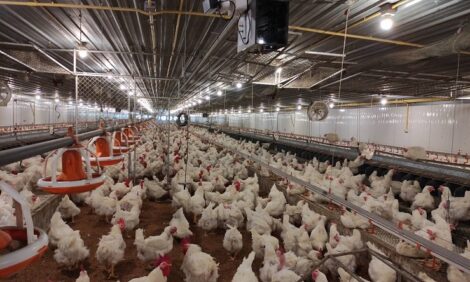



Trade Talks Failure Should Prompt Rethink Of Food And Farming To Combat Obesity Epidemic
GLOBAL - The global obesity epidemic cannot be halted by conventional means and demands a radical rethink of farming and food production worldwide, a leading scientist warned yesterday.Prof Philip James, who chairs the International Obesity TaskForce (IOTF)*, said that the breakdown of the Doha round of World Trade Organization talks on eliminating trade restrictions, offered a new opportunity to totally revitalise the world’s agricultural sector to make it both wealth and health creating.
In a keynote address on agriculture and trade delivered to the International Congress on Obesity in Sydney, Prof James, a former director of a British agricultural nutrition research institute and chair of the United Nations Commission on the Nutritional Challenges of the 21st Century, said that existing farm policies, particularly agricultural subsidies in the EU and USA, had been damaging people’s health for decades.
“We have concentrated on using taxpayers’ money to featherbed the very parts of the food chain that are causing the obesity epidemic today. The over-production of oil, fat and sugar, largely due to government subsidies to protect farm industry revenues, has contributed over decades to the health crisis we have today.
“People have paid three times over – firstly in taxes to support hundreds of millions of dollars in subsidies in the US, the EU and elsewhere, secondly in the resulting harm to their health and thirdly in the health insurance taxes and premiums required to cope with a major burden of preventable chronic disease,” added Professor James, who now leads the Global Prevention Alliance, a consortium of international NGOs concerned with preventing childhood and adult obesity and linked diseases.
There was a fourth cost in terms of jobs in developing countries. The trade distortions generated by the use of public funds to prop up domestic sugar production in the US and EU had cost more than 1 million jobs among sugar growing developing countries.
Prof James, a world authority who advised UK Prime Minister Tony Blair on how to set up Britain’s Food Standards Agency, and prepared the original blueprint for the EU’s Food Safety Agency, said governments needed to take a stronger lead in using the health clauses (Phyto-Sanitary Standards) allowed under World Trade Organization rules, to protect people’s health, but said that small countries were forced to accept the import of poor quality products for fear of losing trade privileges.
Some countries had some success in using regulations to control harmful dietary components. Denmark had effectively banned trans-fats with the possibility of a two year jail sentence for wilful breaches of the regulations, while in the USA,
ThePoultrySite News Desk








